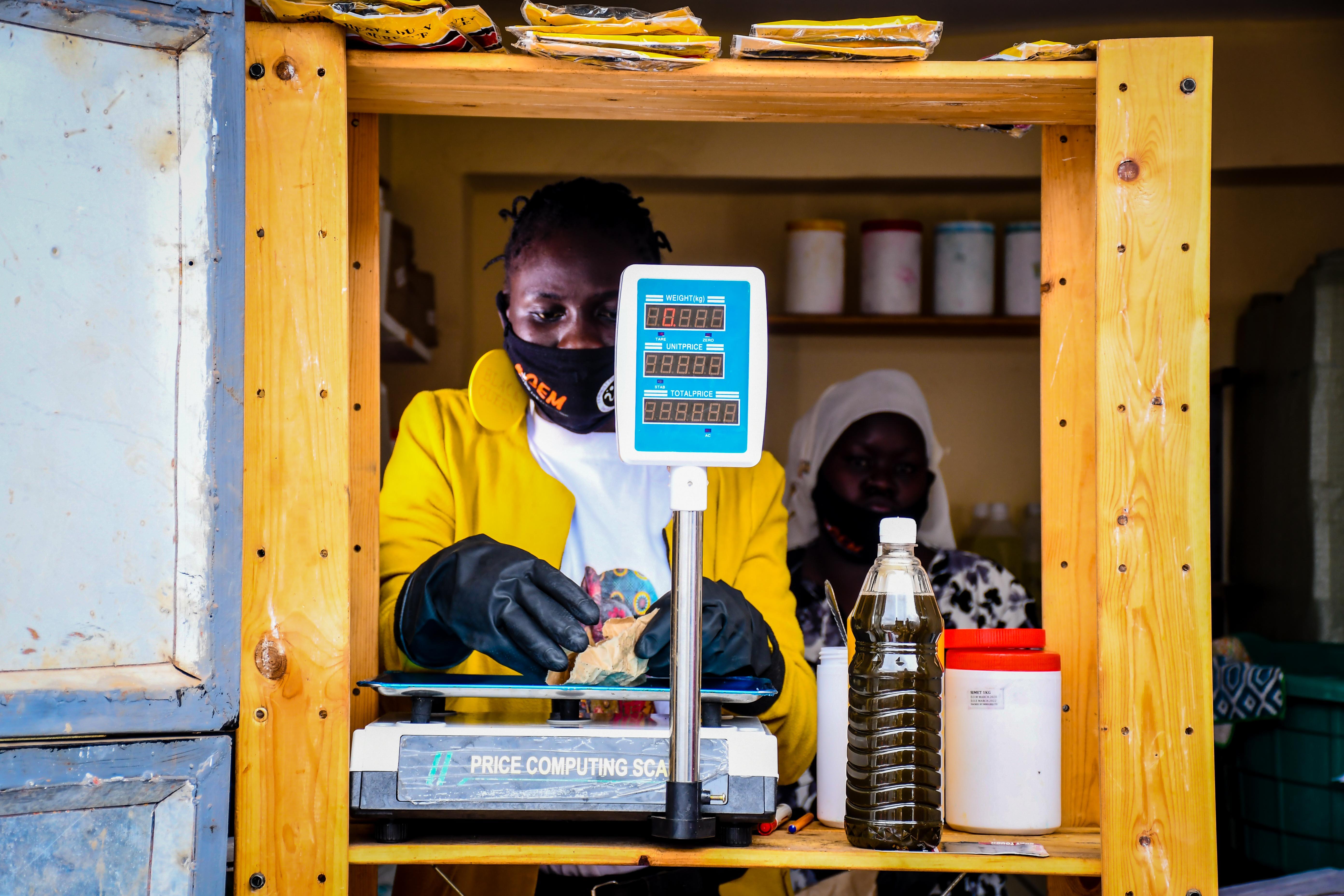Eunice Ajiambo lives in Gatwekera, one of the thirteen villages that make up Kibera, Africa’s largest urban informal settlement located in Kenya’s capital, Nairobi. She is a single mother of four daughters and a survivor of gender-based violence. “I was a housewife, depending on my husband for everything, and life was hard because money was the biggest cause of conflict in our relationship. I left my marriage after I could no longer endure the abuse,” she says.
Following her separation, Eunice set out to do odd jobs to make ends meet, before settling on a career as a welder and painter in the male dominated construction industry.
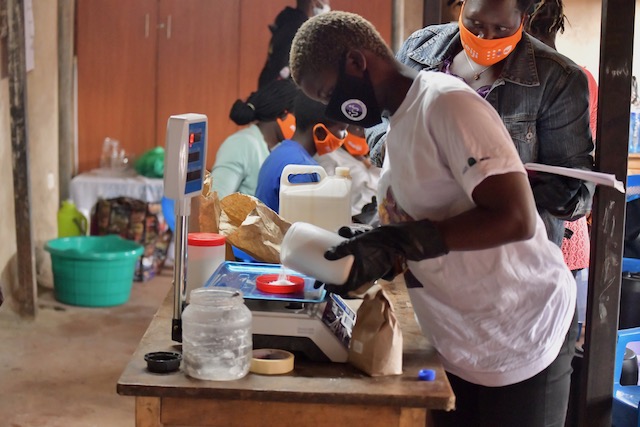
When Covid-19 struck, many construction sites were closed down, and Eunice lost her source of income. “Workers were required to live within the construction site during lockdown, in shared accomodation facilities. As the only woman in the team, I was not comfortable with this arrangement. I also had to take care of my children aged between 5 and 15 years, as I am their only caregiver, and therefore could not work under such an arrangement.”
I left my marriage after I could no longer endure the abuse.
Eunice is amongst 200 women who are receiving training on income generating skills under the Tujijenge Tujilinde Project (meaning let’s build and protect ourselves), an initiative of UNFPA with funding from Japanese company, Meiji Holdings Co., Ltd. The project focuses on training women on how to make, brand and market soap products such as shampoo, handwash, dish-washing and other multi-purpose liquid detergents. In implementing this project, UNFPA has partnered with the Feminists for Peace, Rights, and Justice Center (FPRJC), a community based organization in Kibera, and the African Gender and Media Initiative Trust (GEM) to provide hands-on training and business mentorship to the women of Tujijenge Tujilinde.
Women bear economic brunt of pandemic
A study by UNFPA, UN Women, CARE International and Oxfam on the gendered impact of Covid-19 in Kenya in 2020 showed that women are bearing the brunt of the economic and social impact of the COVID-19 pandemic. Women from poor and marginalized communities like Kibera face even greater challenges attributed to loss of livelihoods and compounded by increased violence and tension in the home. This is evident from the stories told by beneficiaries of the Tujijenge Tujilinde Project, who now hope to recover economically by learning a new skill.
25 year old Millicent Ochieng worked as a domestic worker earning Kshs 500 ($5) a day, before being let go by her employer in the aftermath of the pandemic. “Since Covid-19 was announced, people are afraid of employing househelps from informal settlements. They think that we are worse carriers of the disease,” she says. Millicent’s husband also lost his job due to the pandemic, and she is excited at the prospect of earning income from soap making to support her family of five. “Everyone can make bar soap, but liquid soap is a unique product. I plan to focus on making hand wash which I can sell within Kibera to encourage hand hygiene during this period,” she says.
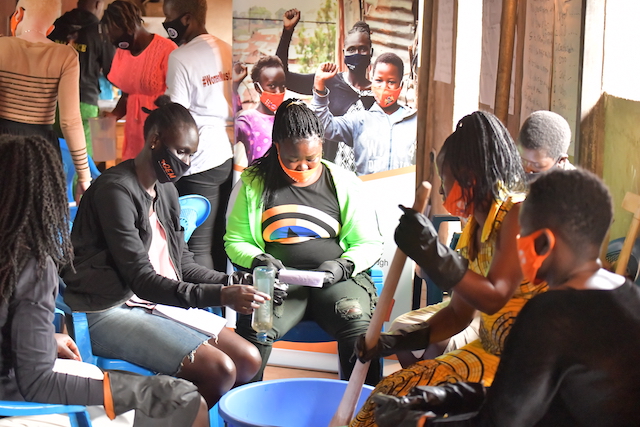
Through the training, the women have been able to develop a line of branded liquid soap products known as “FemiNg’arisha”, with “Ng’arisha” being a Swahili word meaning “to clean and shine.” The women have established a small store within Kibera where they plan to sell the soap, in addition to door-to-door sales and product placement in shops and supermarkets. FPRJC founder Editar Ochieng says the income generating project will help guard against gender-based violence (GBV) for many at risk women enrolled in the programme. “These women need the means to stand on their own two feet economically, which is what the project provides. Our organization also works to offer psychosocial support to them and to other women and girls in Kibera, which reinforces their confidence and ability to respond to and prevent GBV,” she said.
Private sector partnerships key in developing solutions
While visiting the Tujijenge Tujilinde workspace in Kibera, UNFPA Representative, Dr. Ademola Olajide, lauded the women for their hard work and resourcefulness in launching a new product. “This partnership with Meiji Holdings has strengthened our support to women in responding to GBV and harmful practices in the context of the pandemic. Tujijenge Tujilinde project has the immediate value of cushioning vulnerable women and girls in the informal settlements against livelihood constraints as a result of Covid-19 and also contributes to Kenya’s Big Four Agenda, especially the manufacturing component,” he said.
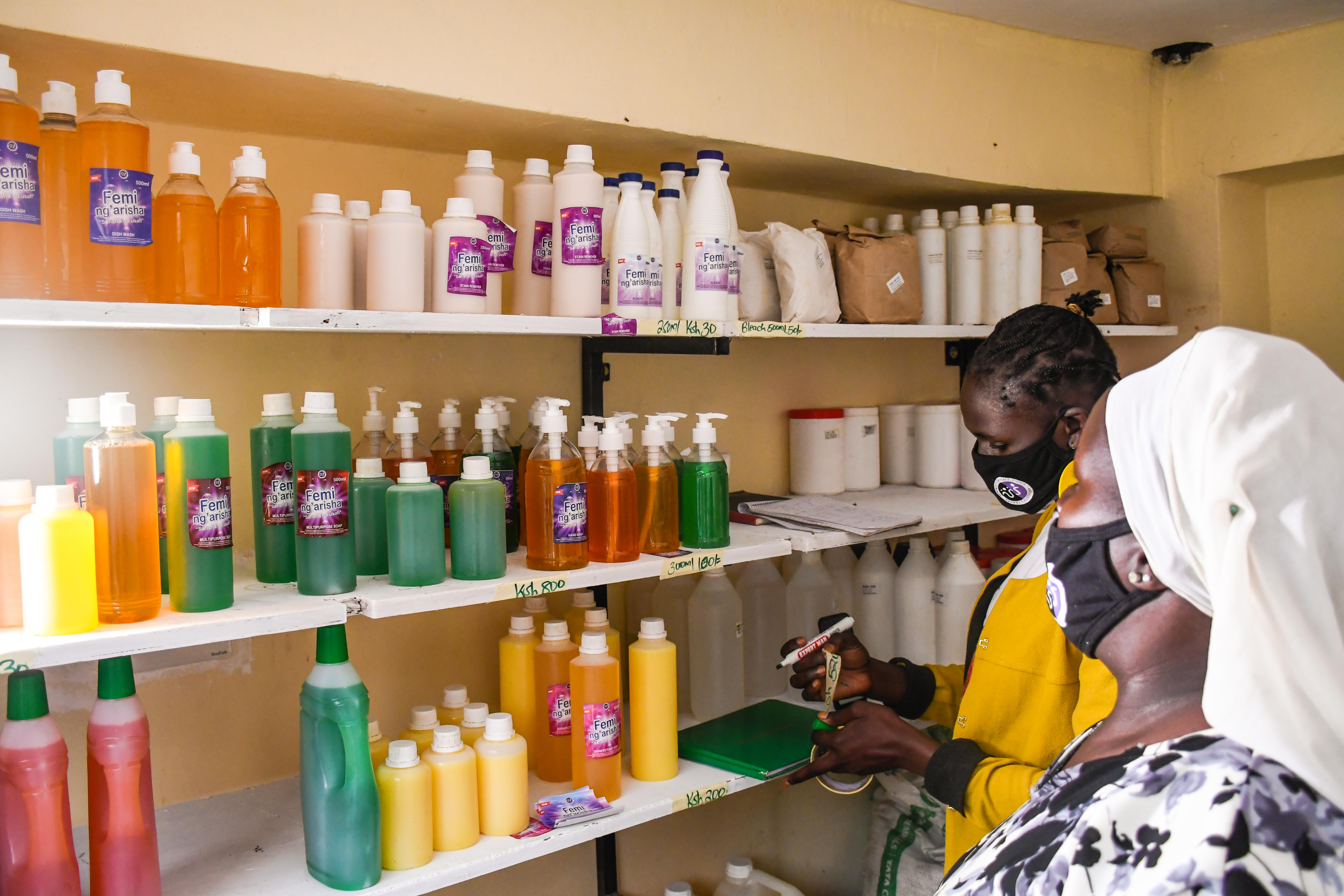
At a virtual launch of the Tujijenge Tujiilinde store attended by representatives from the local administration, UNFPA, Meiji Holdings and the Embassy of Japan in Kenya, the women showcased a range of seven cleaning products that make up the FemiNg’arisha line. “Meiji Holdings Co., is a Japanese company that manufactures food and pharmaceuticals so that people can live safe and healthy lives. We consider the health of mothers and infants to be very important, and we are therefore delighted to support the women of Kibera through this project,“ said Meiji executive Ms. Maiko Yamashita. From the embassy of Japan in Kenya, Ms. Taiko Yusa noted that UNFPA and Meiji have demonstrated the potential that lies in connecting communities with the private sector in developing solutions that offer support to vulnerable populations.
Tujijenge Tujilinde project has the immediate value of cushioning vulnerable women and girls in the informal settlements against livelihood constraints as a result of Covid-19 and also contributes to Kenya’s Big Four Agenda, especially the manufacturing component
The FemiNg’arisha line of products includes Feminga'risha Multipurpose Detergent Soap; Feminga'risha Bleach; Feminga'risha Disinfectant Soap; Feminga'risha Dish Wash; Feminga'risha Hand Wash; Feminga'risha Stain Remover; and Feminga'risha Shampoo.
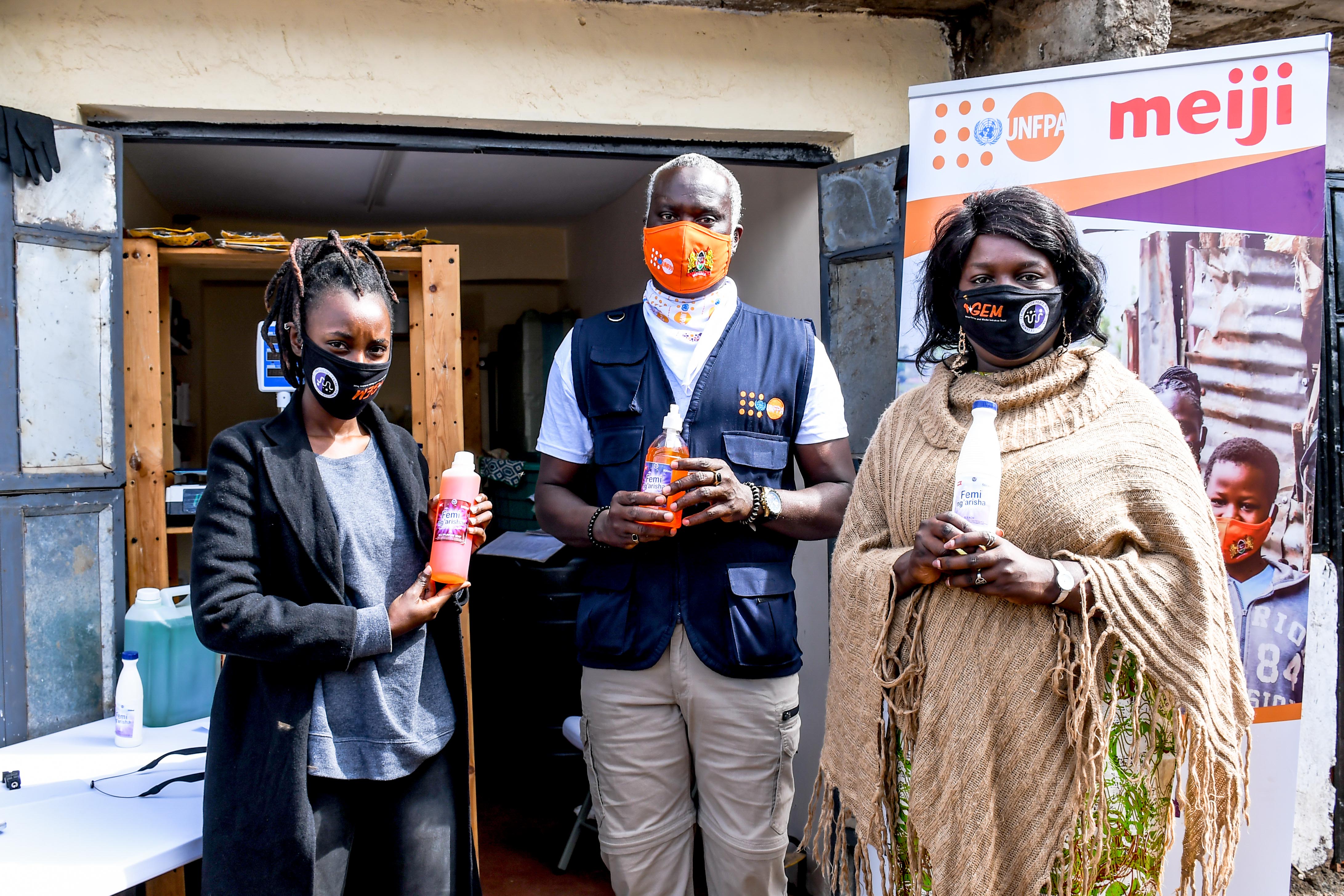
UNFPA’s strategic vision is to attain zero levels of gender based violence and harmful practices, preventable maternal deaths and unmet need for family planning. Women’s economic empowerment has the multiplier effect that guarantees the autonomy of women in decision making and agency, thus reducing vulnerability to violence and strengthening their maternal health outcomes. “Economically empowered women have improved chances of negotiating and safeguarding their choices in regard to sexual and reproductive health rights and protection risks,” said Dr. Ademola.

